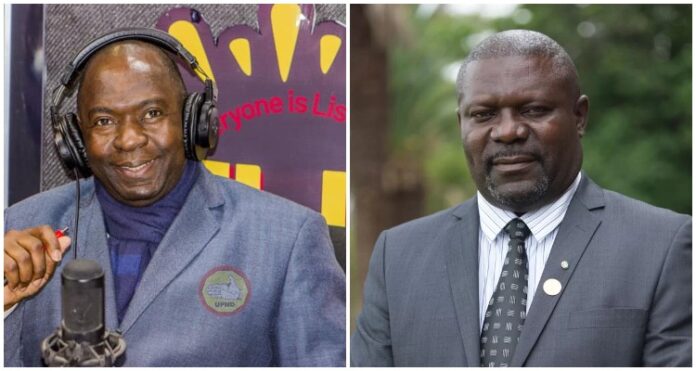KBF – MULUSA MARRIAGE A THREAT TO UPND & PF
©NewsMakers Editor
Politically, Zambia is highly driven by regional loyalty. Parties start out and place their hopes to grow by depending on the support from a region where a particular leader of a party comes from. When one analyses the composition of National Assembly even now, most of the Members of Parliament -save those in multicultural areas – have stood and won in their home village or town. If you are from Eastern Province, you have high chances winning an election in that area than you do in any province.
Two political parties; the Patriotic Front and United Party for National Development have shown that regional loyalty is currently a large determinant factor in the growth of a political party. However, UNIP and MMD have to be viewed and judged from their fundamental principle of establishment. UNIP was a revolution party whose aim was to attain Independence from colonists while MMD was a movement whose objective was to restore multiparty democracy. Both parties received multicultural support, regardless of who led them at formation, because their objective was the interest of all Zambians.
Now that Zambia has its Independence and there is somewhat legitimate democracy, Zambians now have diverse preferences in as far as politics is concerned. There is a paradigm shift in the growth of millennium political parties – that is those parties that came after 2000.
Take the Patriotic front for example which was formed in 2001 as a break-away from the Movement for Multiparty Democracy. Its first MP as an opposition came from Chingola, a Bemba speaking area which is largely dominated by Bembas. This is not surprising given that Michael Sata, who founded PF, was himself a Bemba. As time went by, PF increased its presence in Bemba Speaking regions. It is only after the 2011 elections which saw MMD lose to PF, when Easterners begun to slowly gravitate towards accepting PF.
Even the UPND has largely depended on the support from what others call ‘Zambezi Region’ which comprises of Southern, Western and North-Western. It is only in the 2021 elections that Hakainde Hichilema received some acceptance in other regions.
Given these consideration, any party that intends to form a strong force to challenge the UPND and the main opposition PF needs to work towards weakening the regional loyalty base for the two parties.
If media reports that Lucky Mulusa has left the Movement for Democratic Change and has gone to join Kelvin Fube Bwalya’s Zambia Must Prosper movement, is anything to go by, then, herein rests a strategic partnership. This partnership has all the ingredients to change political dynamics, on condition that it works out.
KBF comes from the Bemba-land while Mulusa comes from the Zambezi region. At the moment, KBF will have to fish from the same ponds as the PF.
Even though PF is a largest opposition going by its representation in Parliament, there is no guarantee that it shall remain so. Experience drawn from the MMD after it lost power show that although this party had second large number of MPs in Parliament, by the time it was a year after losing power, it begun to degenerate due to leadership wrangles. Currently, PF has ten people wanting to replace Edgar Lungu and all of them come from the Bemba speaking regions. What is not guaranteed is how the former ruling party will hold together once a leader is chosen. If there are divisions and breakaways, the general membership and sympathizers will lose hope. These will become the real targets for KBF or any party that may be appealing.
As for Mulusa, his influence rests in North-Western where he comes from. He is presented with an opportunity to inflict on the UPND. It must be pointed out that such a combination has existed before but did not give any meaningful effects. However, if this KBF-Mulusa marriage somehow gains momentum, then, both UPND and PF need to worry.- NewsMakers
